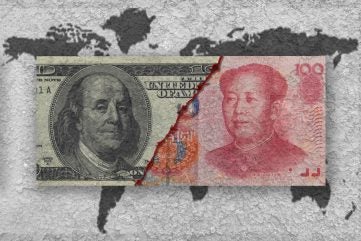
As all eyes turn to the upcoming US election and its presidential candidates, some US senators have suggested a new bill that would encourage the US apparel and textile industry to focus on sourcing locally from both the US and its ‘partner countries’ instead of the likes of apparel sourcing major, China.
The senators proposing the Americas Act described it as “the only major strategic economic plan to counter China’s geopolitical and economic power in the Hemisphere and increase safety and stability to decrease regional migration”.
It coincides perfectly with a new coalition eager to get the so-called “de minimis loophole” closed that is allowing international exporters (again read: China) from delivering goods directly to consumers without facing the checks required under the Uyghur Forced Labor Prevention Act or import tariffs.
There is of course merit to both of these causes, but what does it mean for the global apparel suppliers who follow all of the rules to the letter but rely on the US’ major apparel consumer market for their own survival?
Impact of the US moving apparel sourcing away from China and elsewhere
At last month’s Source Fashion responsible trade show in London, Just Style met several audited responsible Chinese suppliers eager to share their social and environmental accreditations as well as the high quality of their craftsmanship. These suppliers were not looking to bypass checks – in fact they wanted to be scrutinised and to show off what makes them stand out from their competitors.
Similarly, it cannot be forgotten that Africa is still waiting for an extension to the African Growth and Opportunity Act (AGOA), which is due to come to an end in 2025. There were high hopes of an extension being announced before Christmas but now domestic policy has taken over (bar the Israel-Gaza war, of course), it seems more and more unlikely that this will be discussed until after a new US President is named on 5 November.

US Tariffs are shifting - will you react or anticipate?
Don’t let policy changes catch you off guard. Stay proactive with real-time data and expert analysis.
By GlobalDataThe Source Fashion show also featured several responsible Ethiopian fashion suppliers that had to switch their focus away from the US and towards Europe after losing their AGOA entry in January 2022. But the suppliers were quizzing me constantly about when I thought AGOA might come back onto the US agenda with hopes remaining high of it being reinstated.
We are wise to remember that Ethiopia’s major apparel industrial park was created completely with the US apparel market in mind due to where the investments were originally coming from. The factory lines were designed for huge quantities and repetition of the same items, which is very different from that of Europe.
Nearsourcing and nearshoring remain high on everyone’s agenda from both a supply chain resilience and environmental point of view – and so they should.
But, I’d argue it is wise for any future president to remember the fashion supply chain is an extremely complex one that relies on many moving parts.
The benefit for a new US President is that it is one of few international trades that can truly bring nations together, keep conversations flowing and generate income on all sides.
Ruling out entire countries and regions altogether or tarnishing all suppliers with the same brush is extremely short-sighted.
Supply chain diversification and making friends not enemies should surely remain key?
Top news stories on Just Style last week…
Americas Act aims to cut China out of US textile, apparel sourcing picture
A group of US Senators are floating a bill aimed at bolstering the US’ trade partnership with countries in the Western Hemisphere while lowering its reliance on China.
US coalition formed to address de minimis import loophole
A bipartisan coalition hopes to close the de minimis imports loophole that allows packages valued at $800 or less to reach US consumers without facing any taxes, fees or inspection.
Primark has ‘no current plans’ to get ‘slice’ of India’s growing market
UK retailer Primark has denied reports that it is in talks with Indian conglomerate Reliance Industries to expand to India, however industry onlookers believe India’s market is filled with potential for the brand.
EU forced labour goods ban is no CSDDD ‘substitute’ say experts
The EU parliament and council has provisionally agreed on new rules that would ban products made with forced labour from the European market, however apparel industry experts see it as a “missed opportunity” to adopt this legislation without the Corporate Sustainability Due Diligence Directive (CSDDD).
H&M Group unveils Syre to scale textile-to-textile rPET production
Syre, a venture initiated by global investor Vargas Holding and Swedish retailer H&M Group, is spearheading the decarbonisation and wastage reduction of the textile industry through large-scale textile-to-textile recycling, starting with polyester.
Matalan ‘first’ UK retailer to drive online sales with GenAI tool
UK fashion and homeware retailer Matalan in collaboration with global digital transformation consultancy Kin + Carta claims to be the first UK retailer to adopt a Generative AI (GenAI) tool that enhances online product descriptions to elevate the online shopping experience and boost sales.



